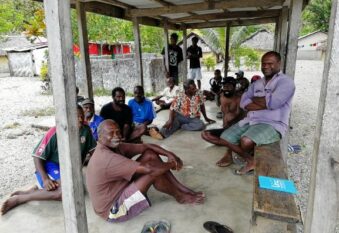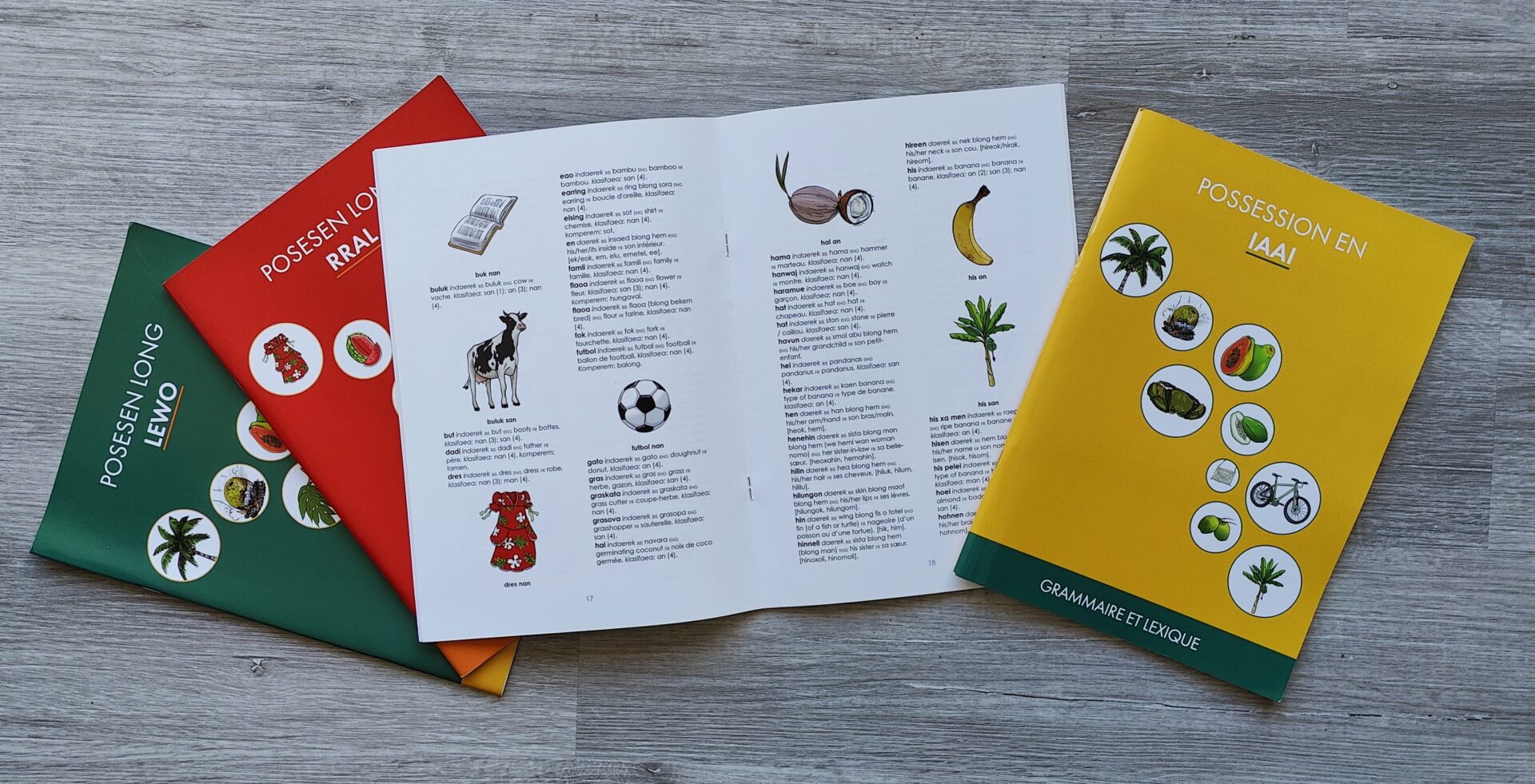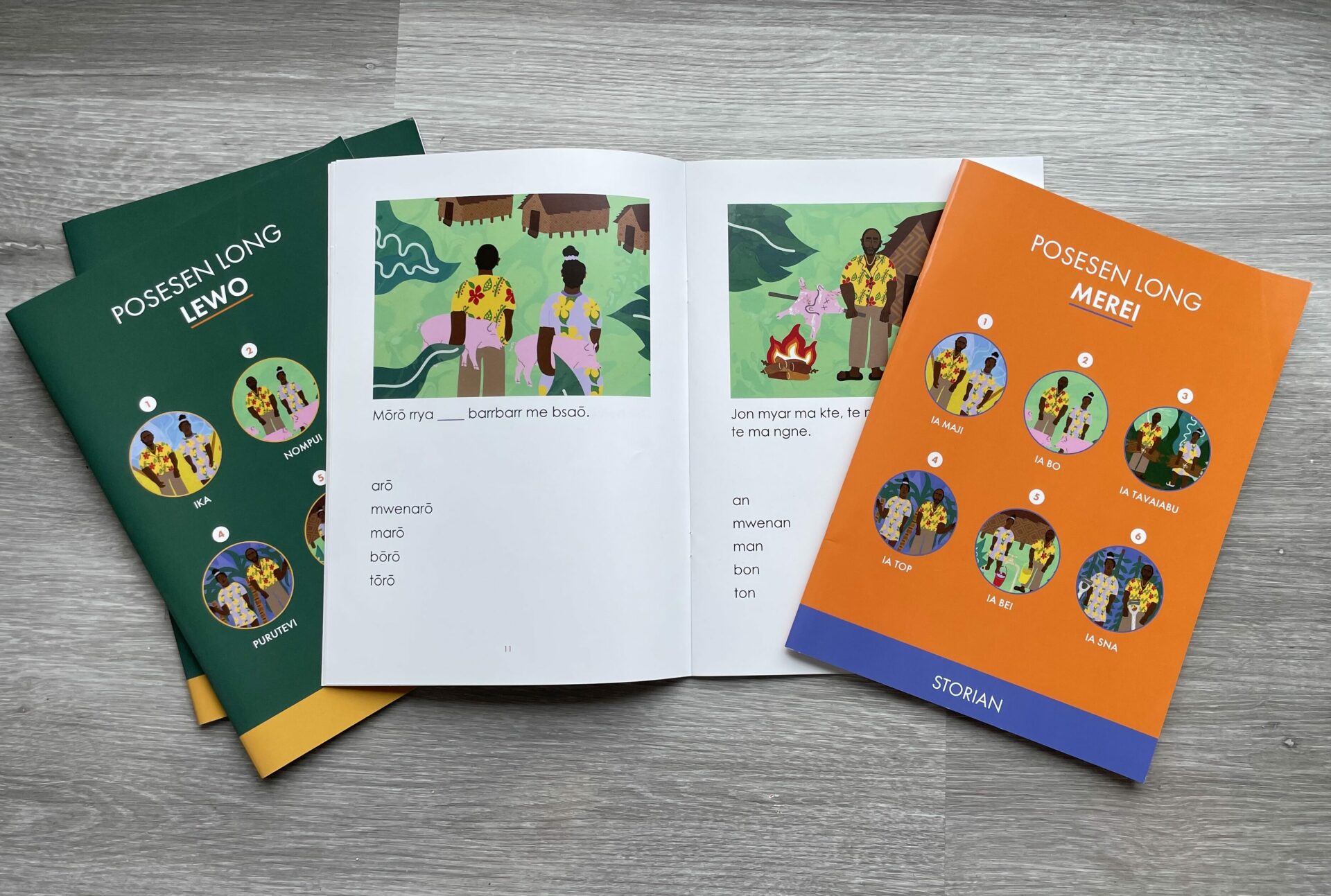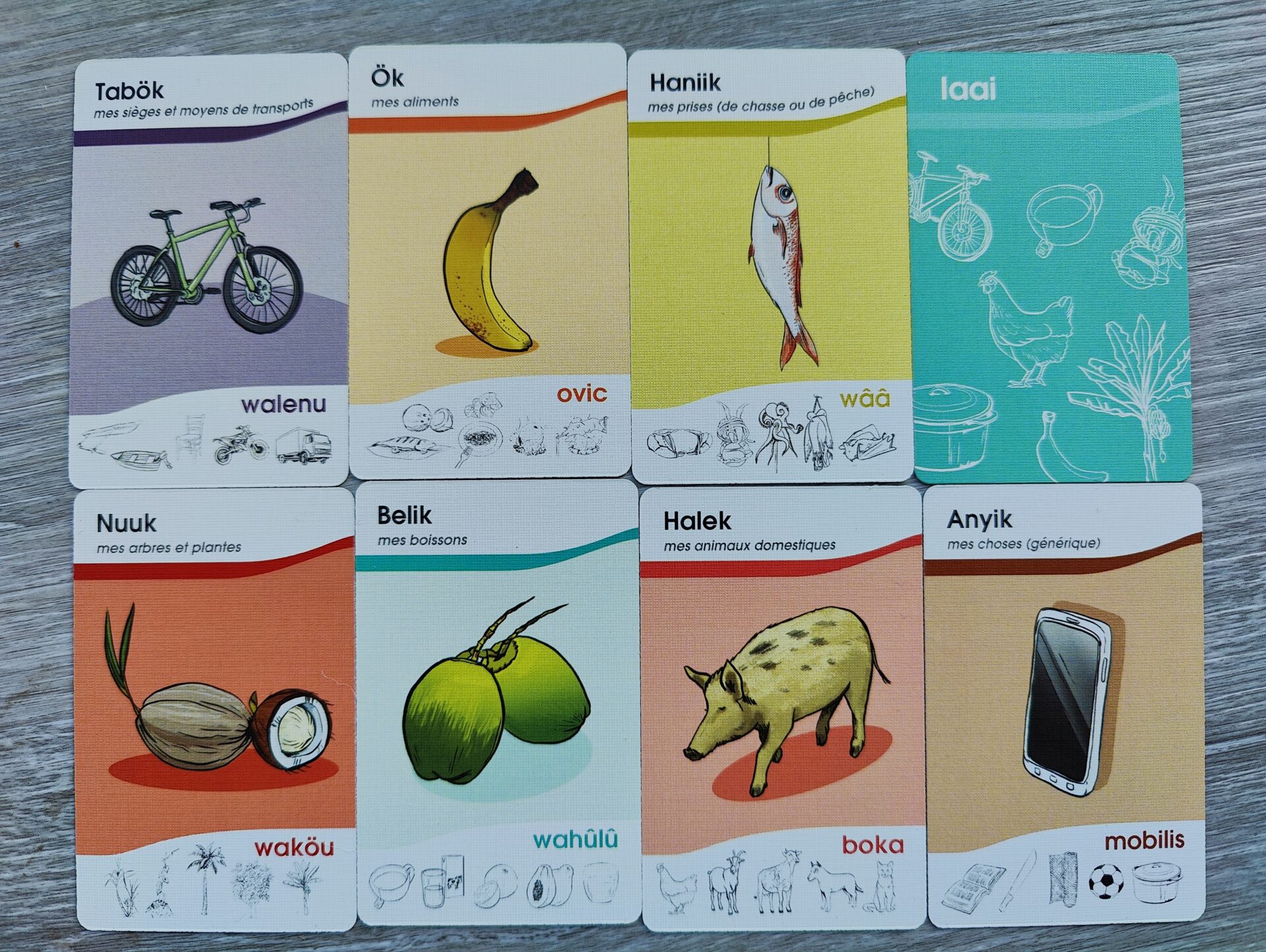In the six South Pacific communities of Vanuatu and New Caledonia we are working with, we are developing much needed vernacular literacy materials together with local stakeholders through our dictionaries and school books.
We are engaging with the general public to explain and educate about these intriguing types of nominal categorisation found in Vanuatu and New Caledonia through articles on the SMG’s blog MORPH and through other engagement activities, such as the ESRC Festival of Social Science.



 Our simple storybooks, which were produced as a result of our storyboard project, were additional resources for vernacular literacy materials. These are designed to show language learners how flexible their classifier system is by introducing objects used in different ways throughout the simple story to evoke different contexts that result in a change in classifier use.
Our simple storybooks, which were produced as a result of our storyboard project, were additional resources for vernacular literacy materials. These are designed to show language learners how flexible their classifier system is by introducing objects used in different ways throughout the simple story to evoke different contexts that result in a change in classifier use.

